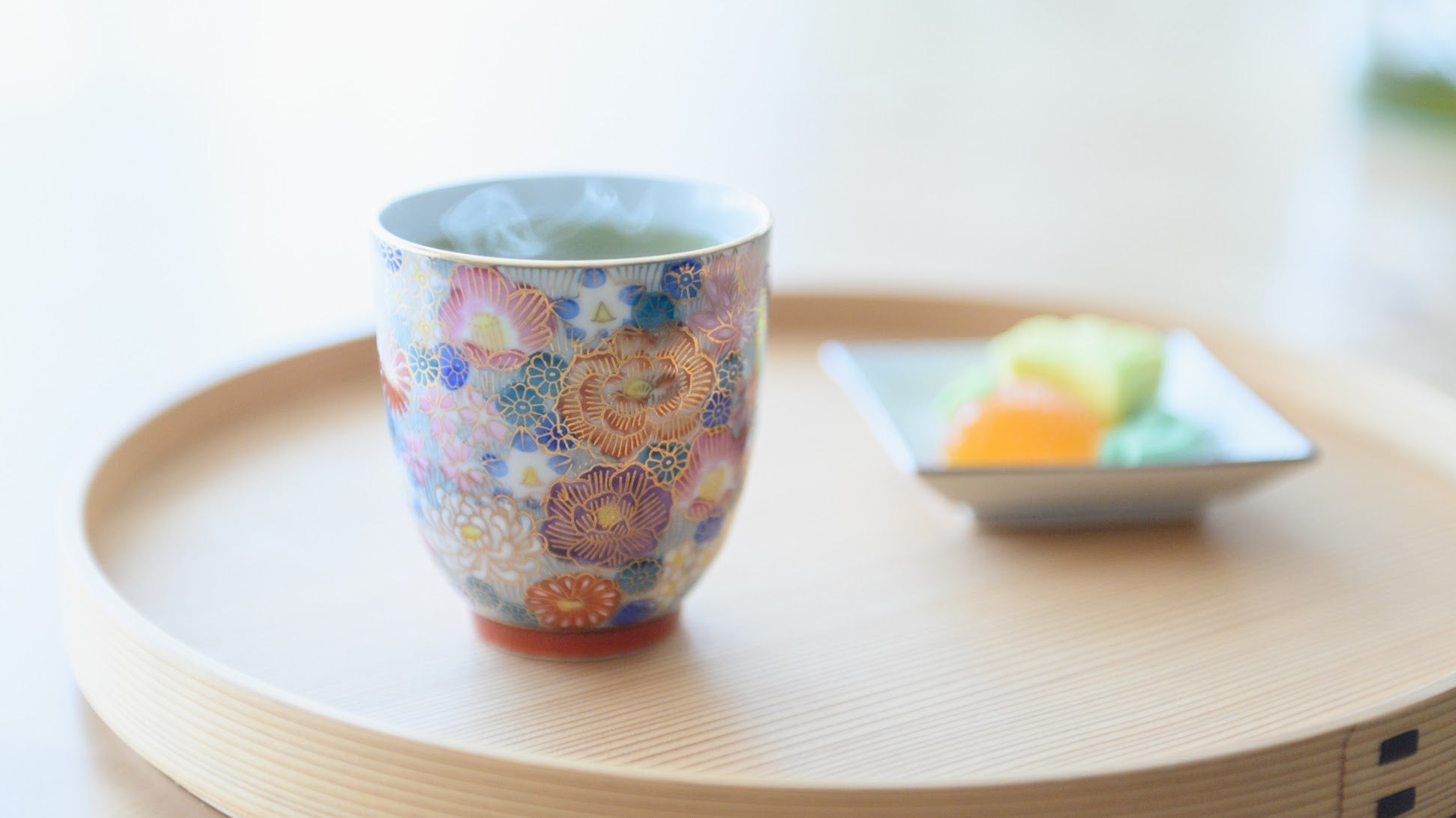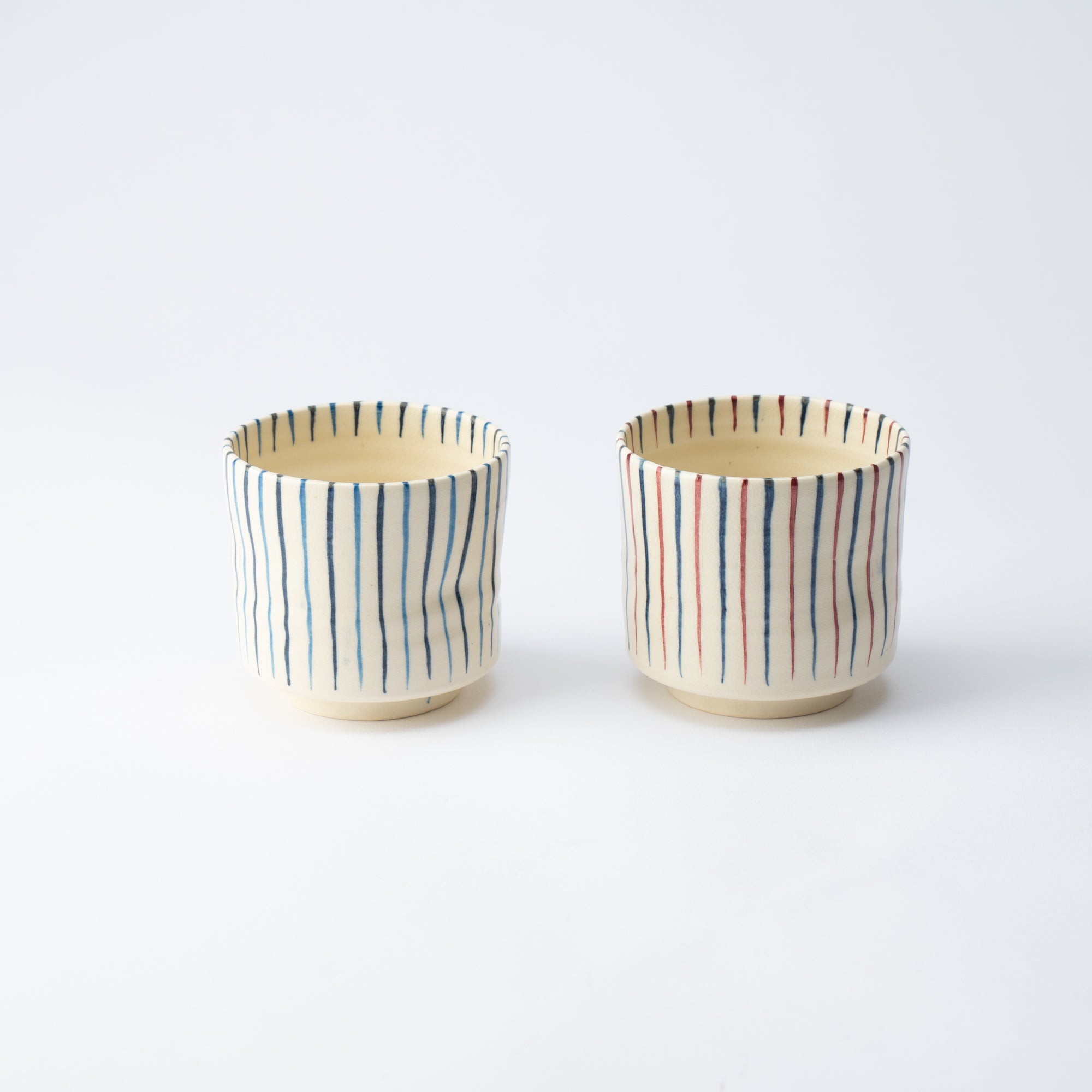
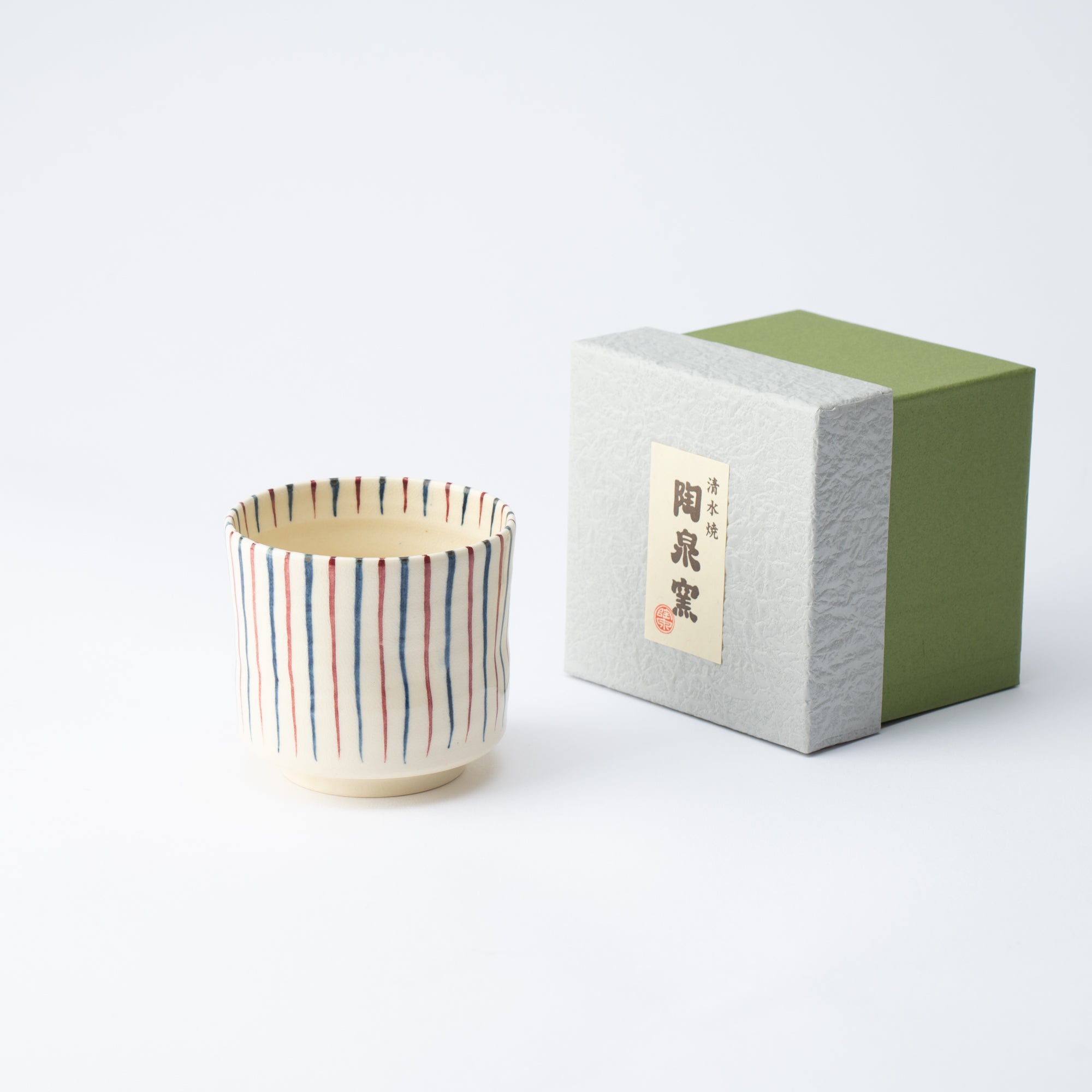
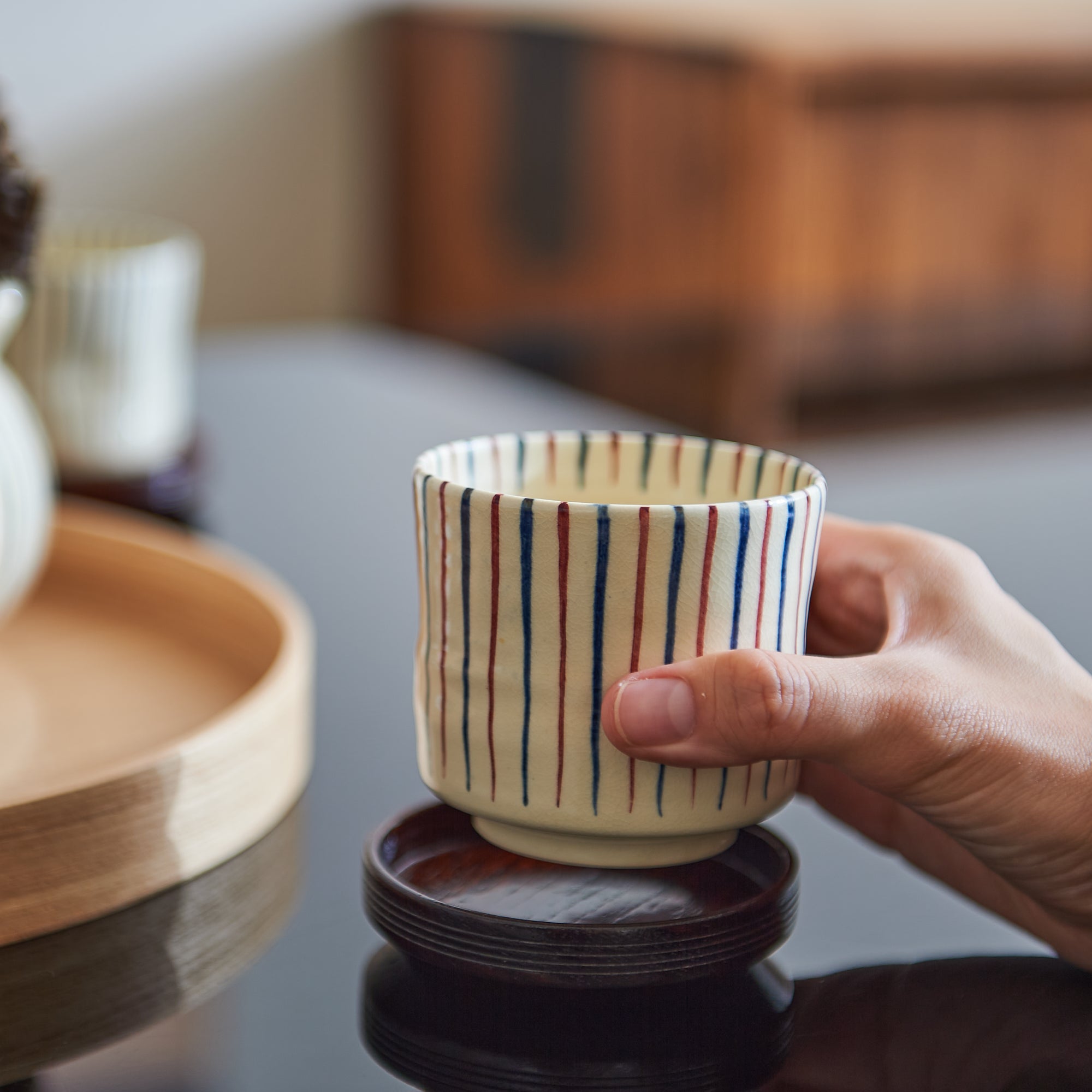
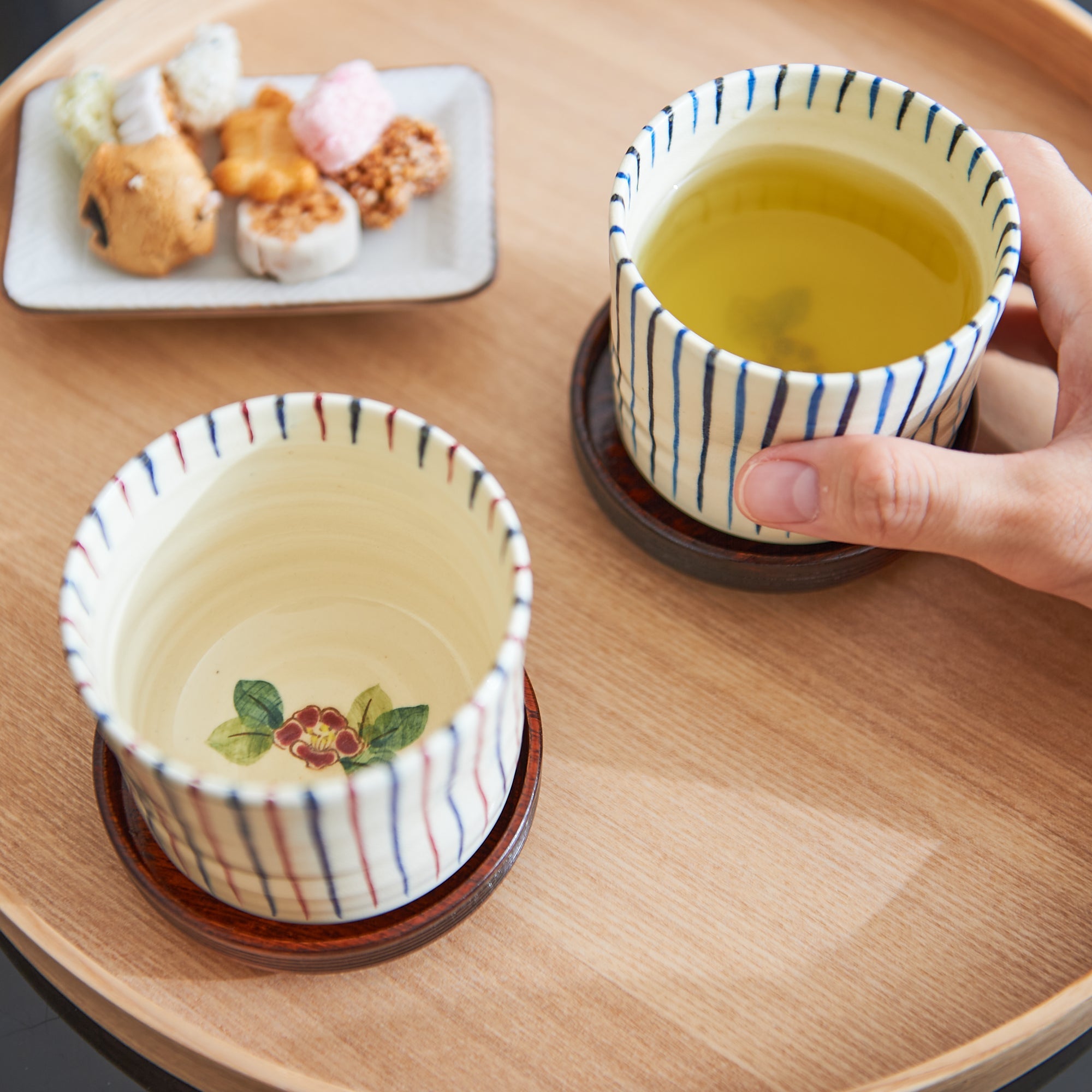
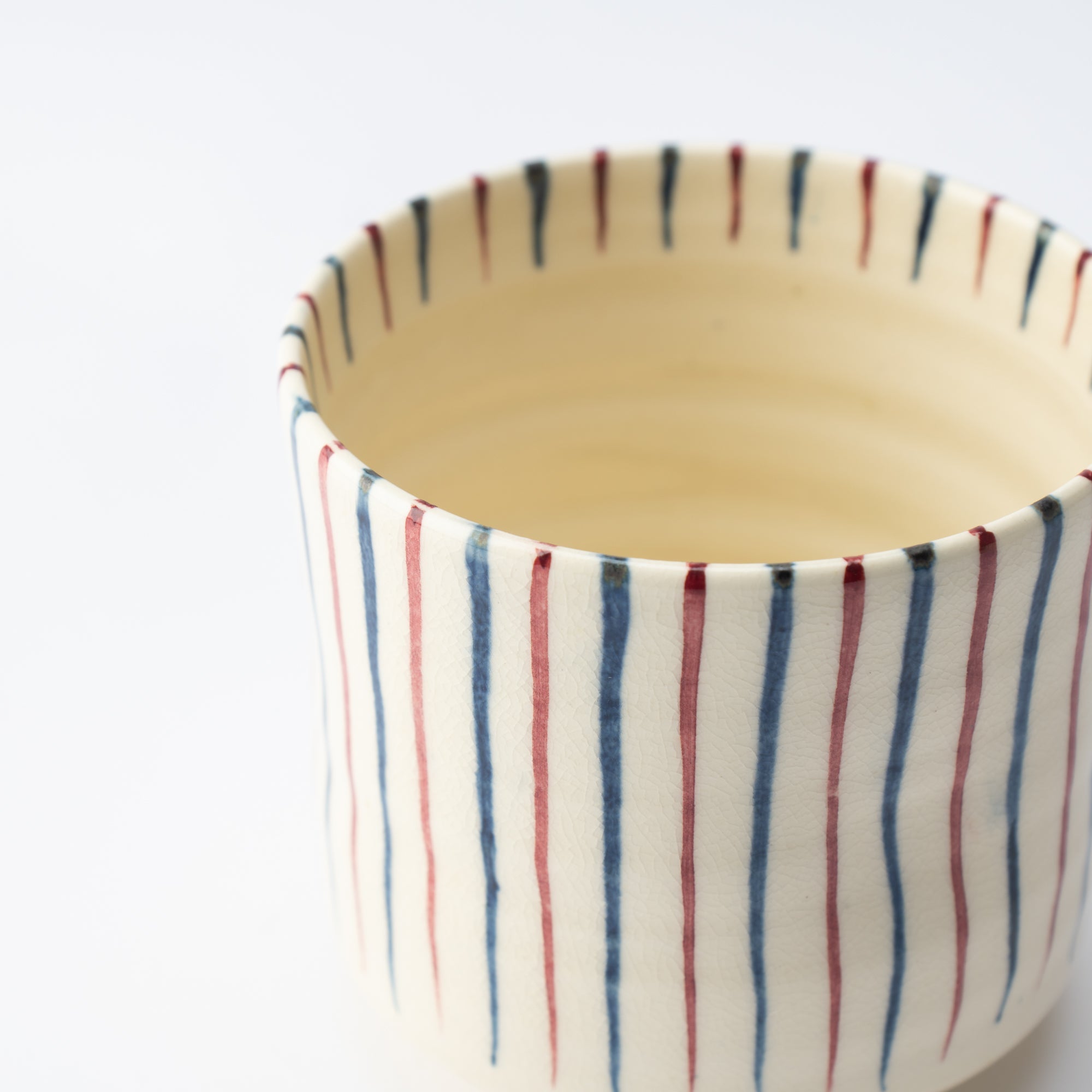
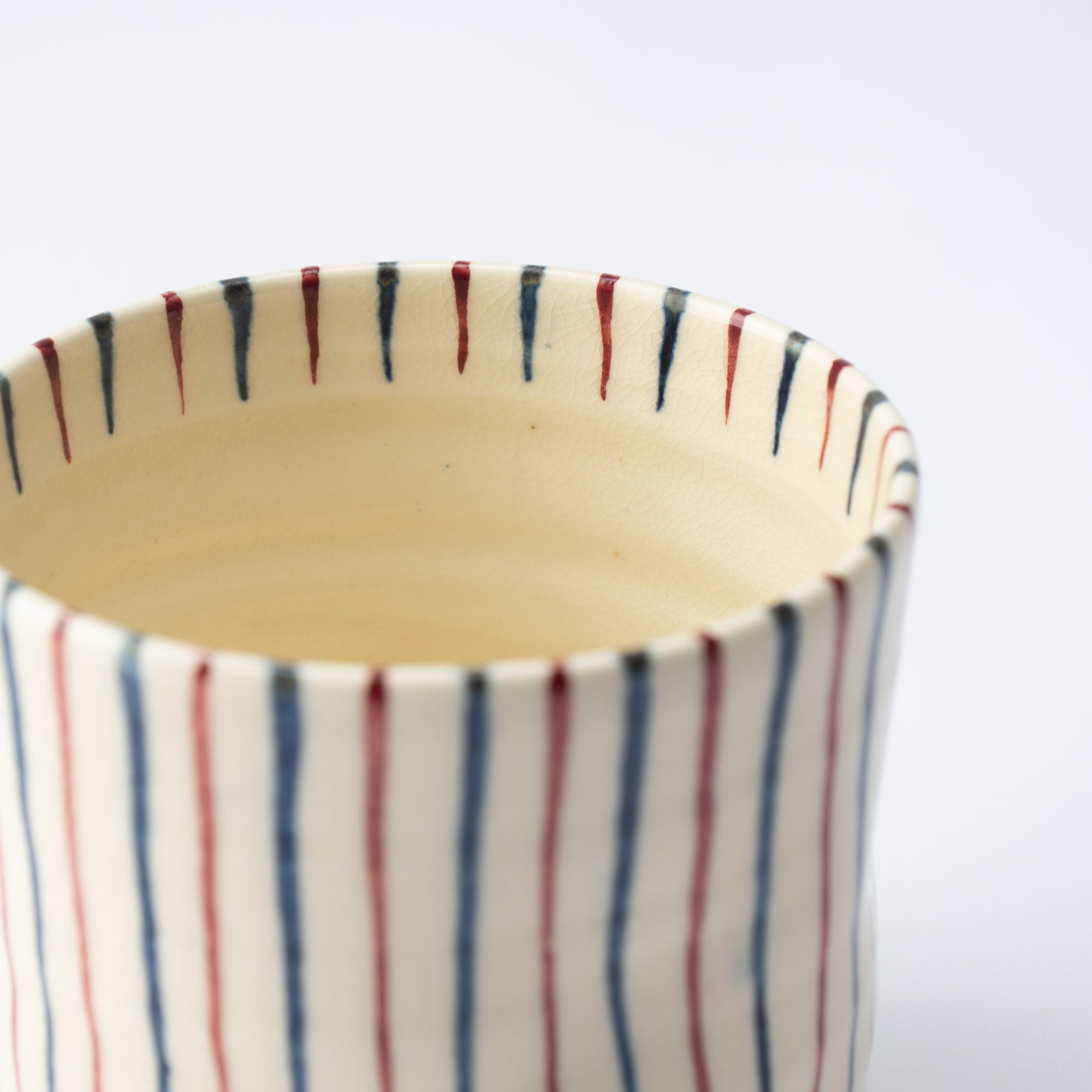
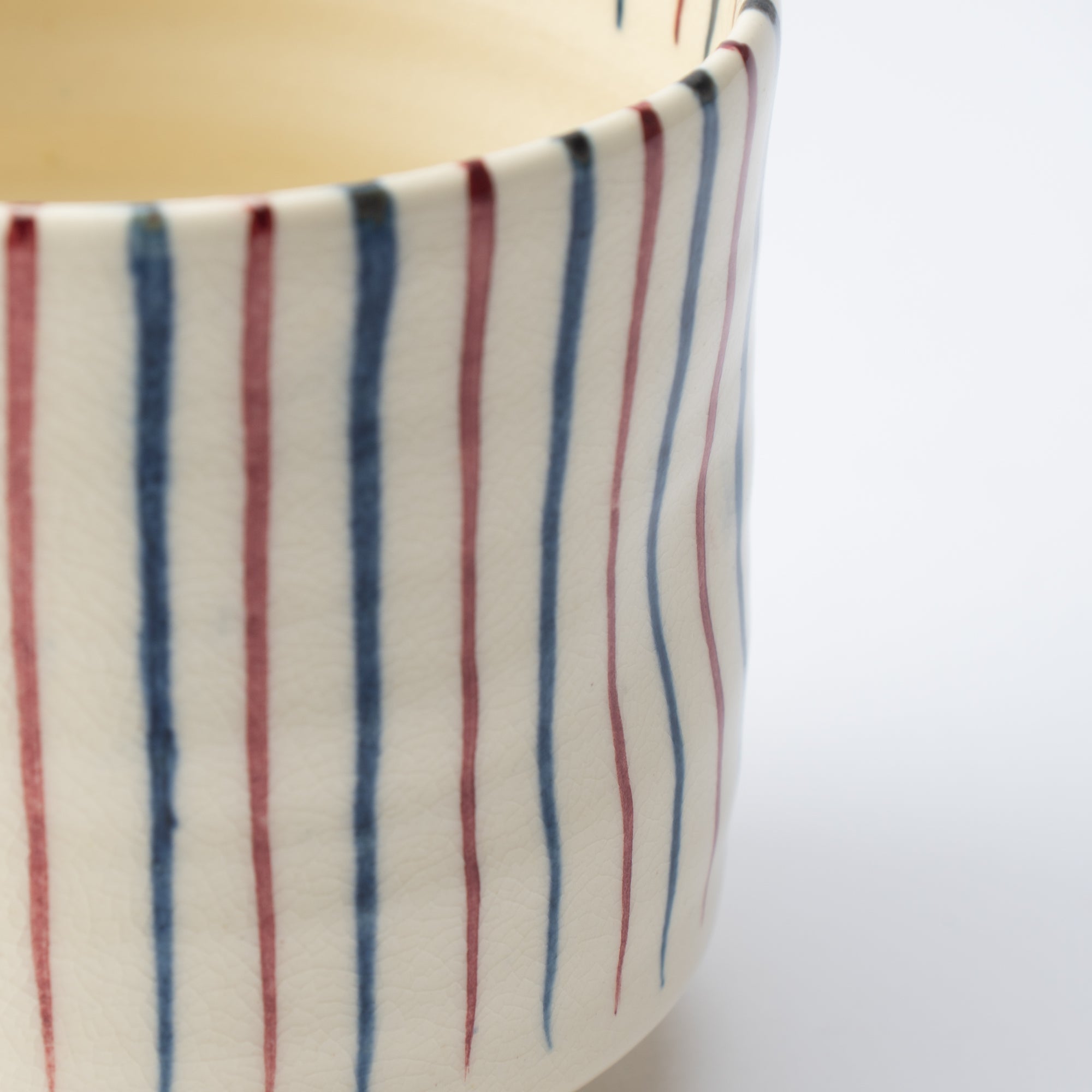
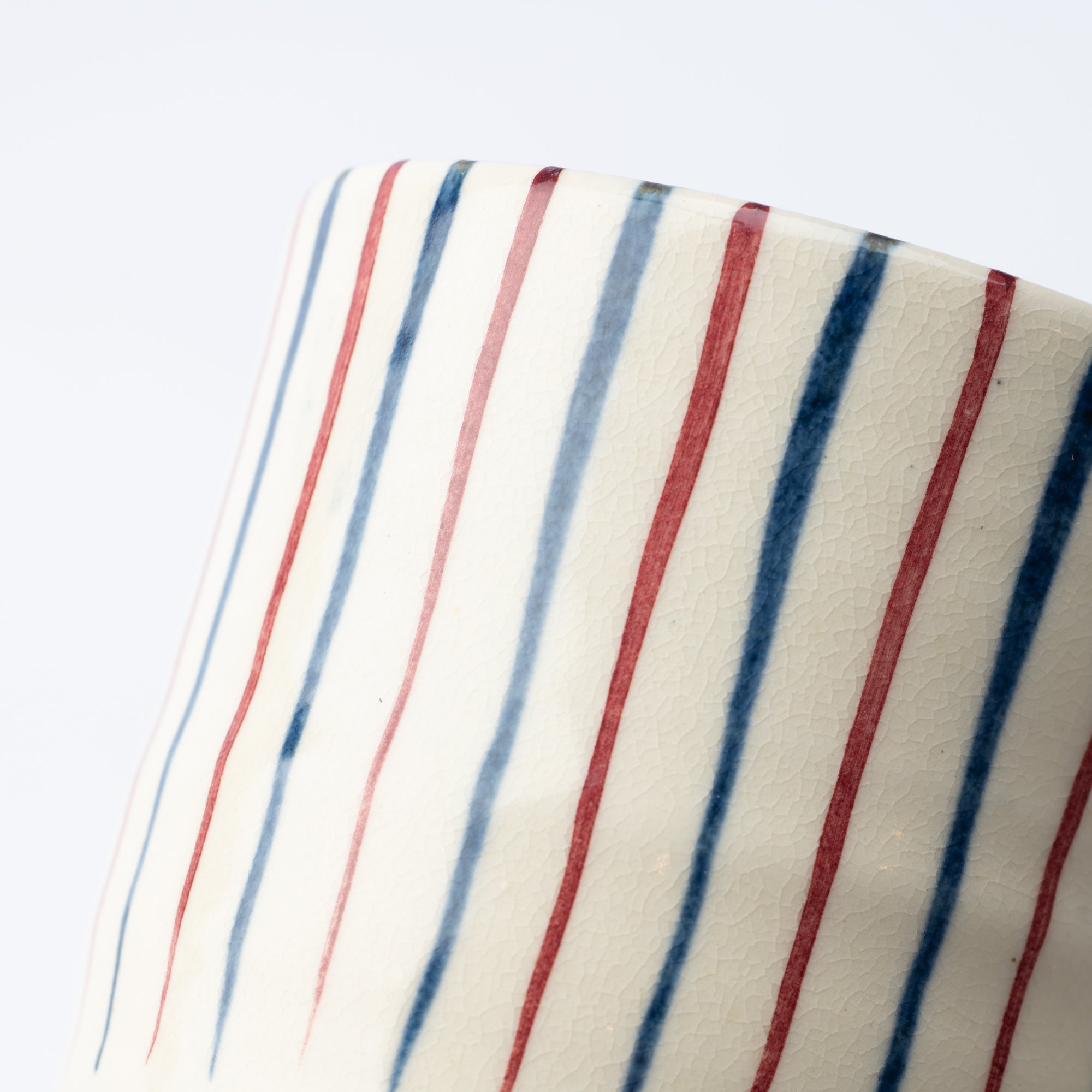
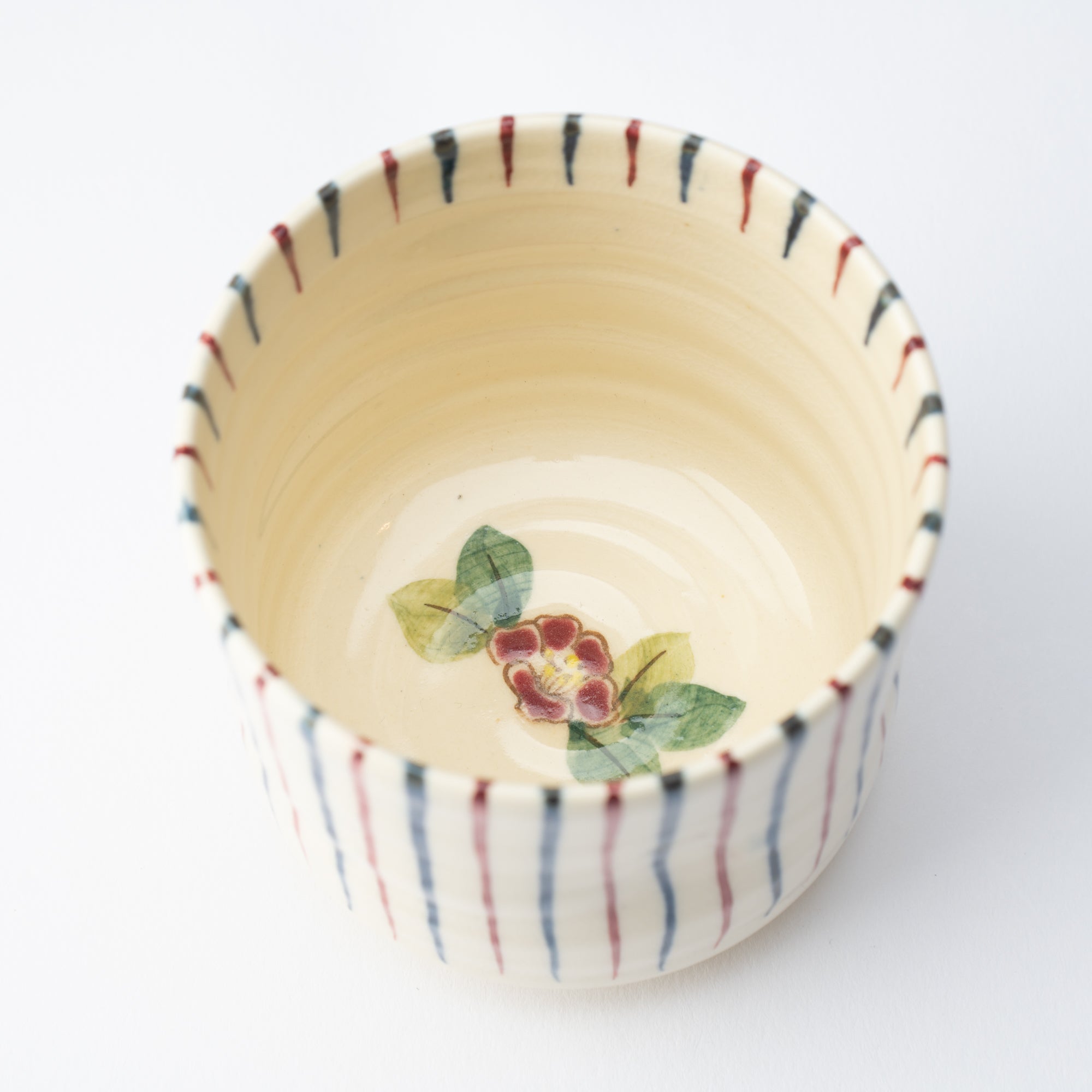
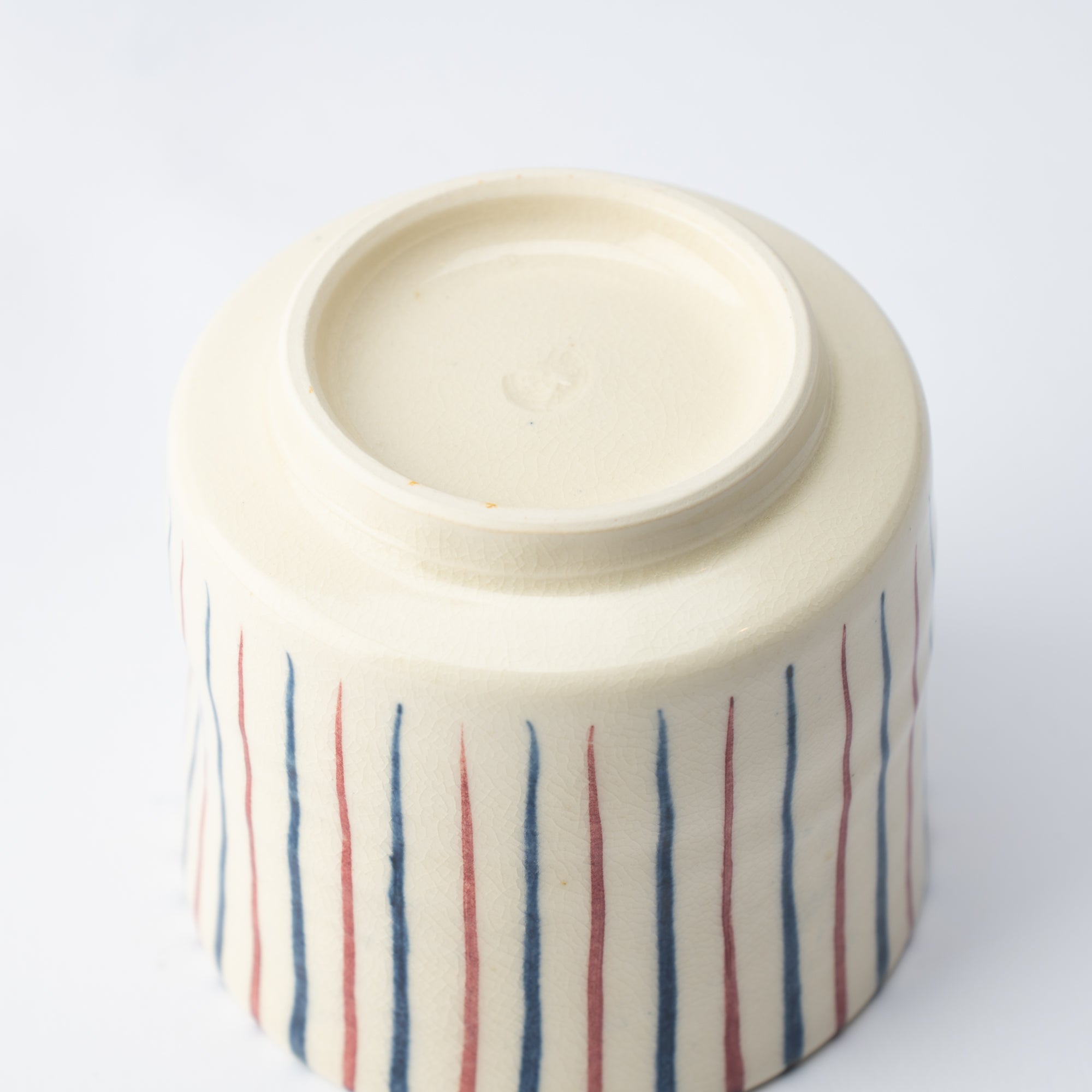
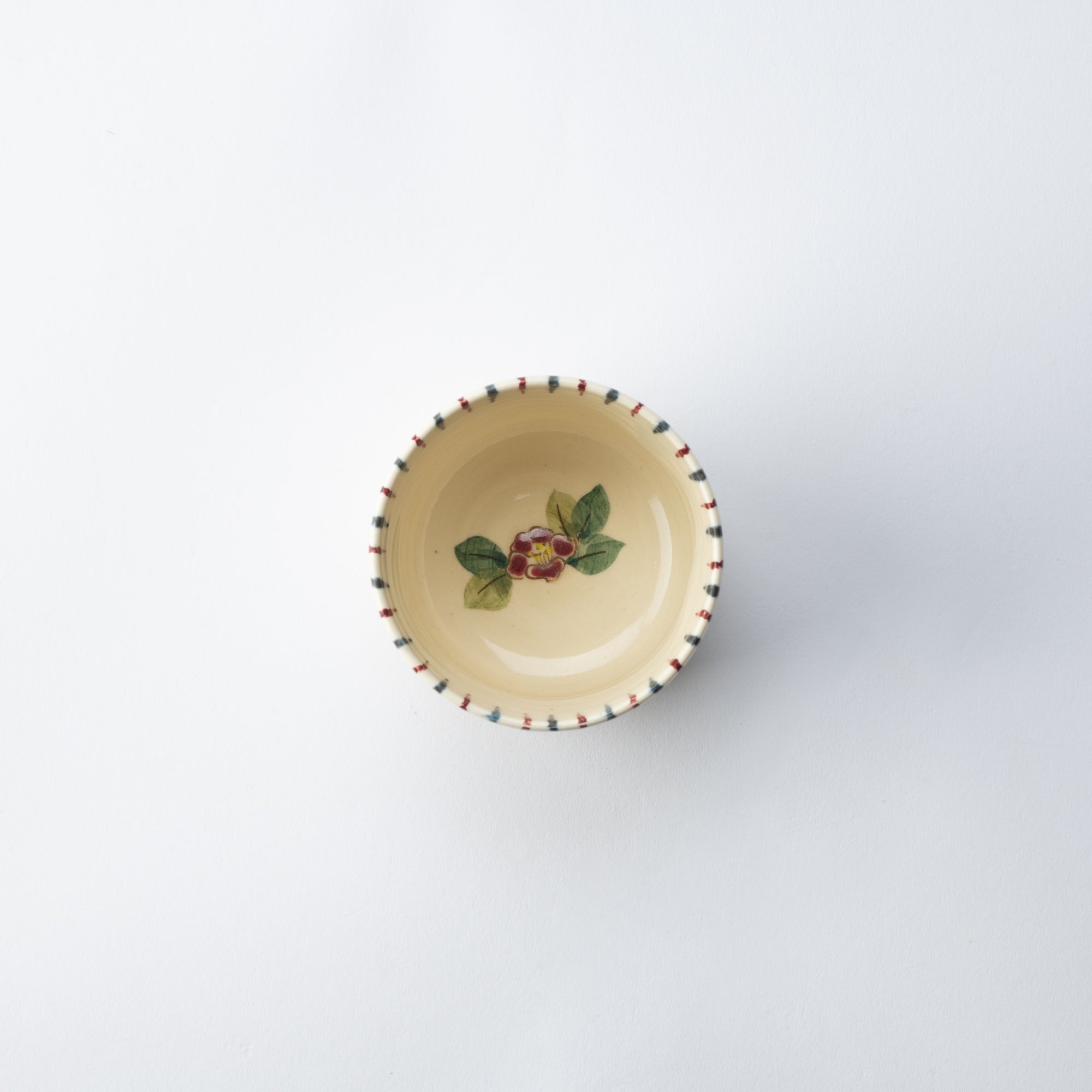
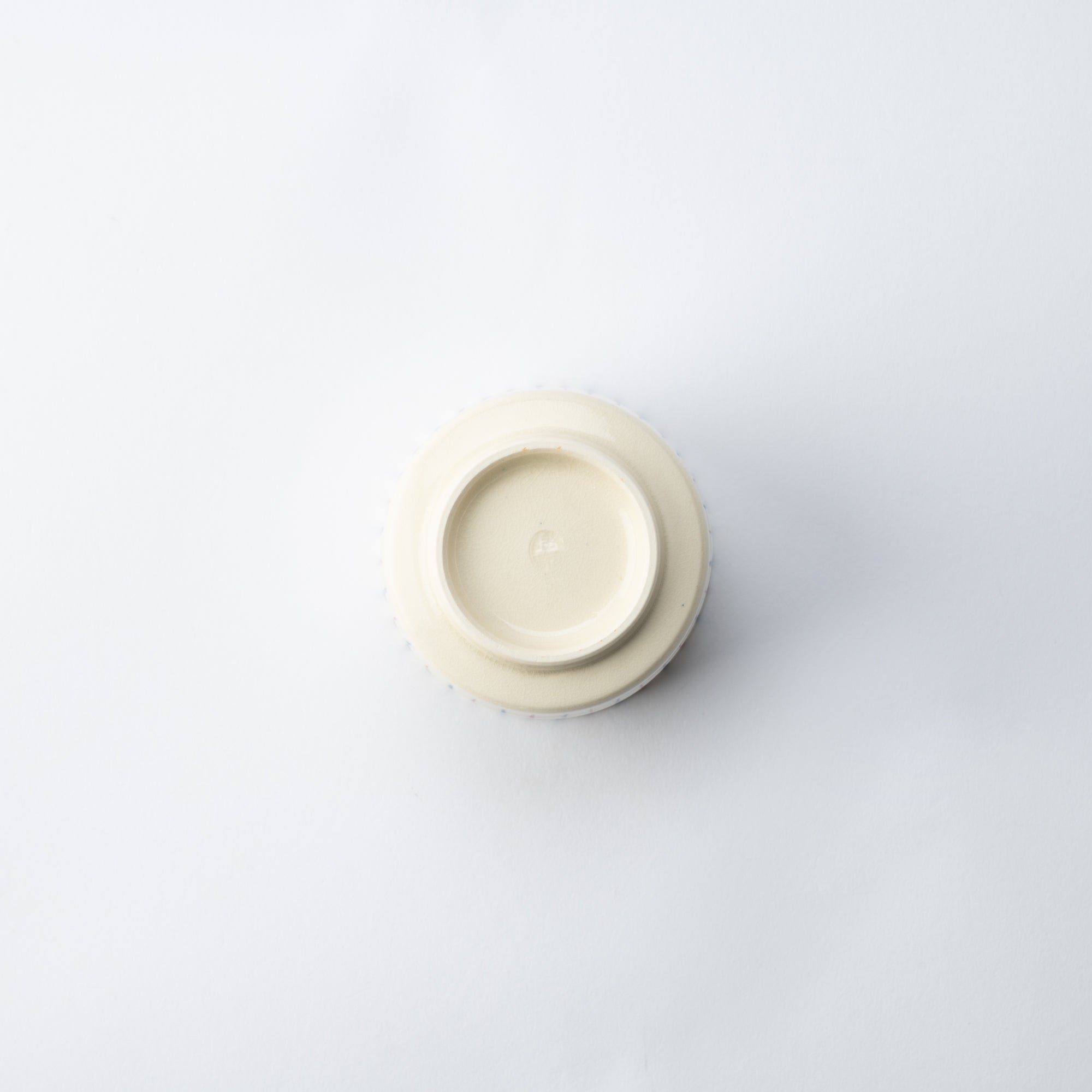
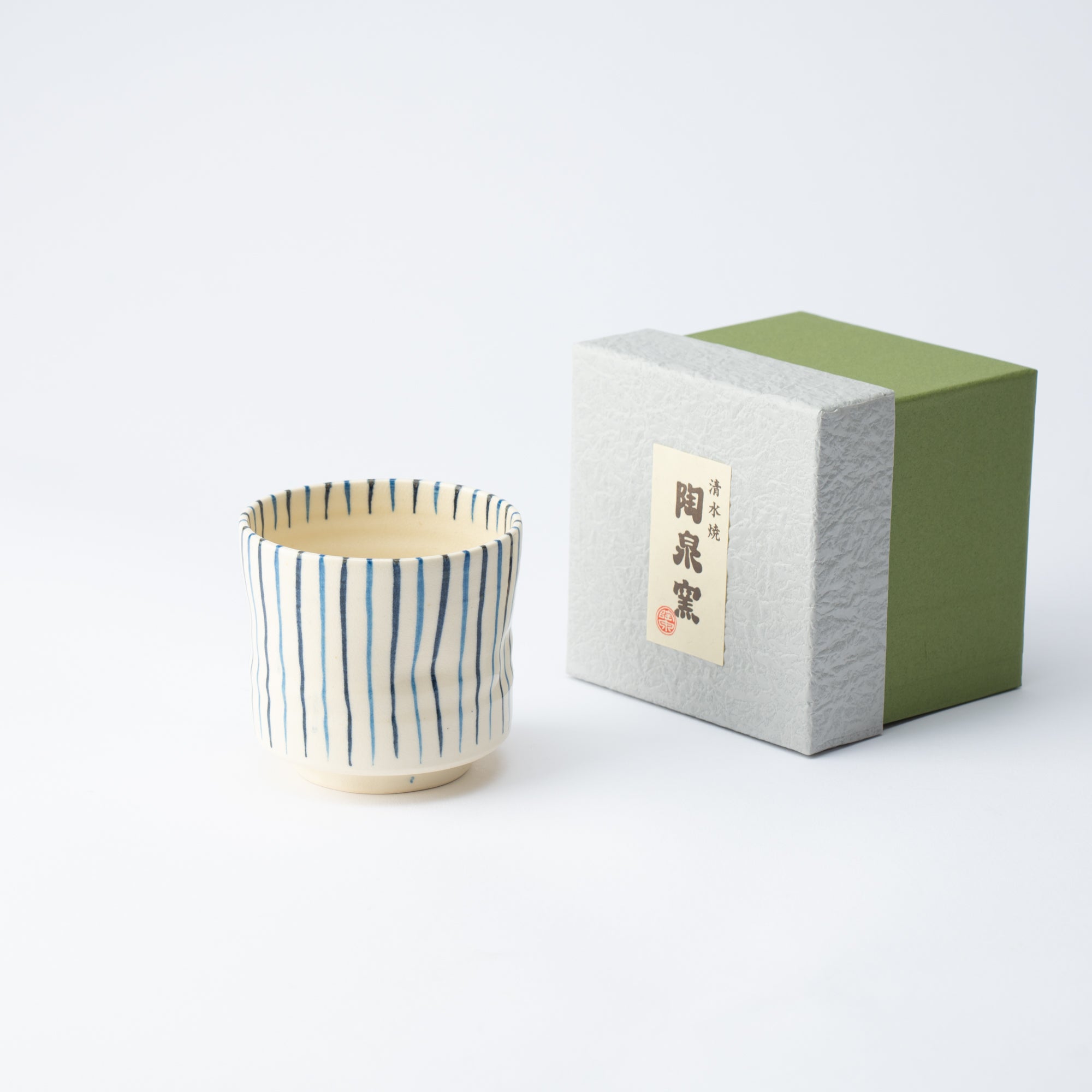
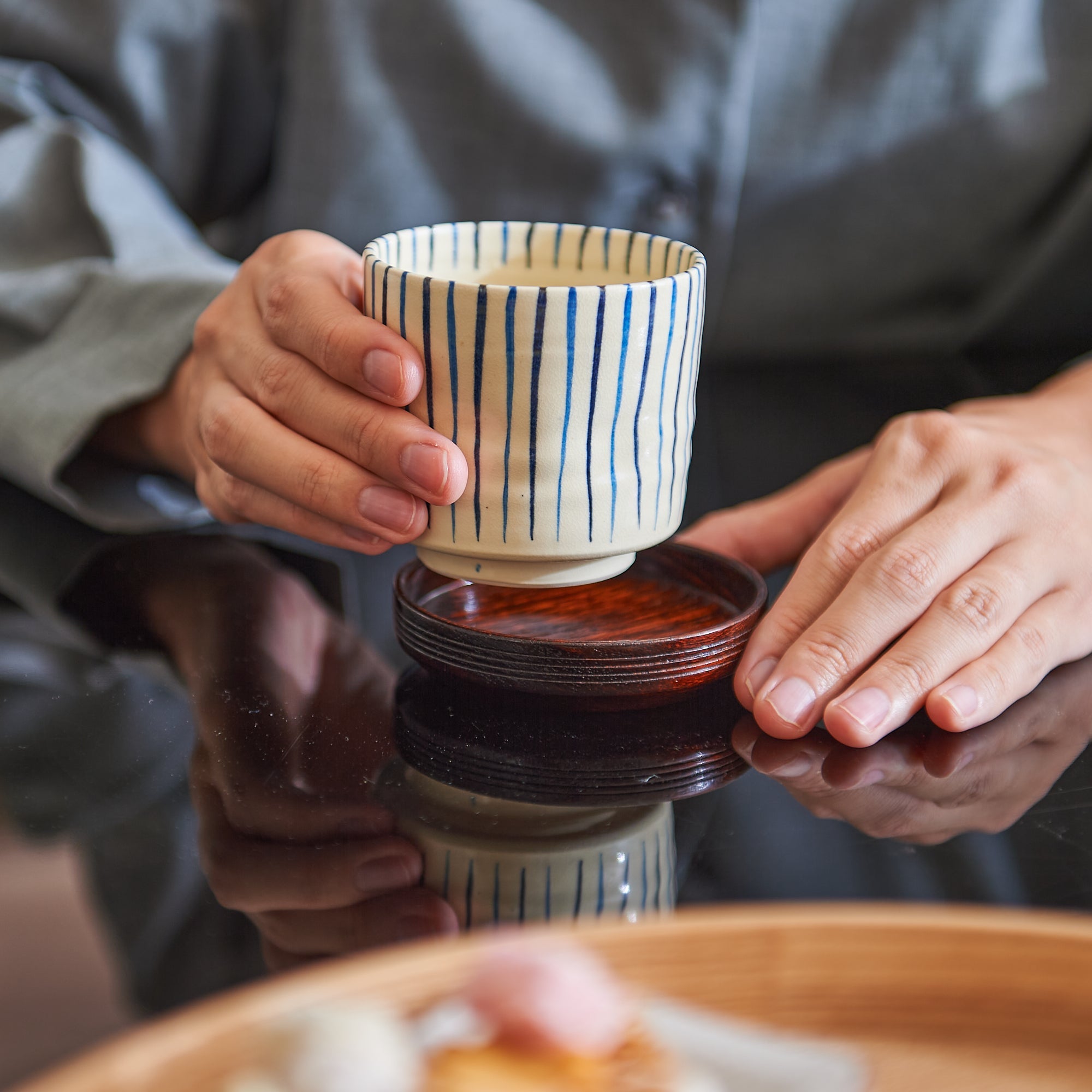
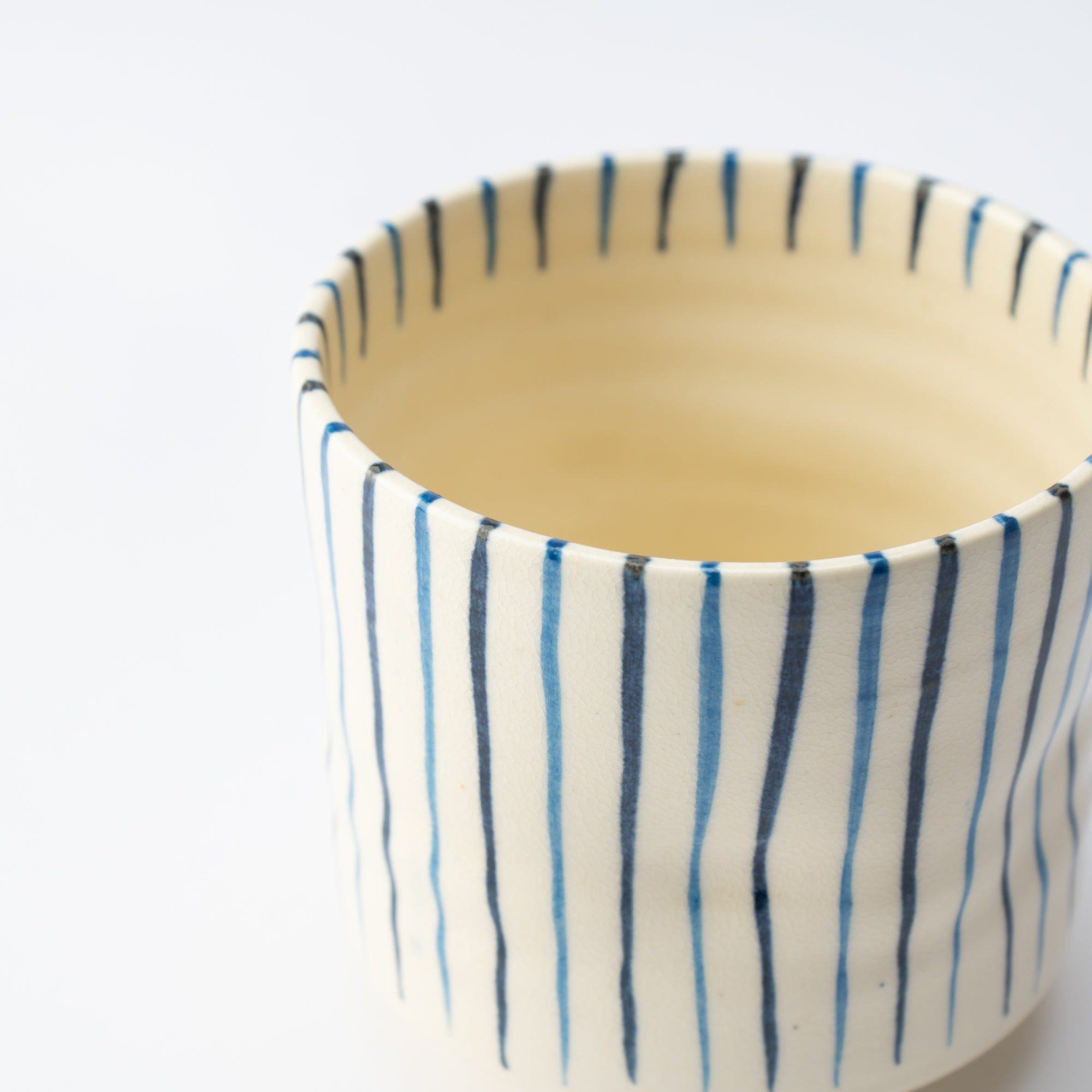
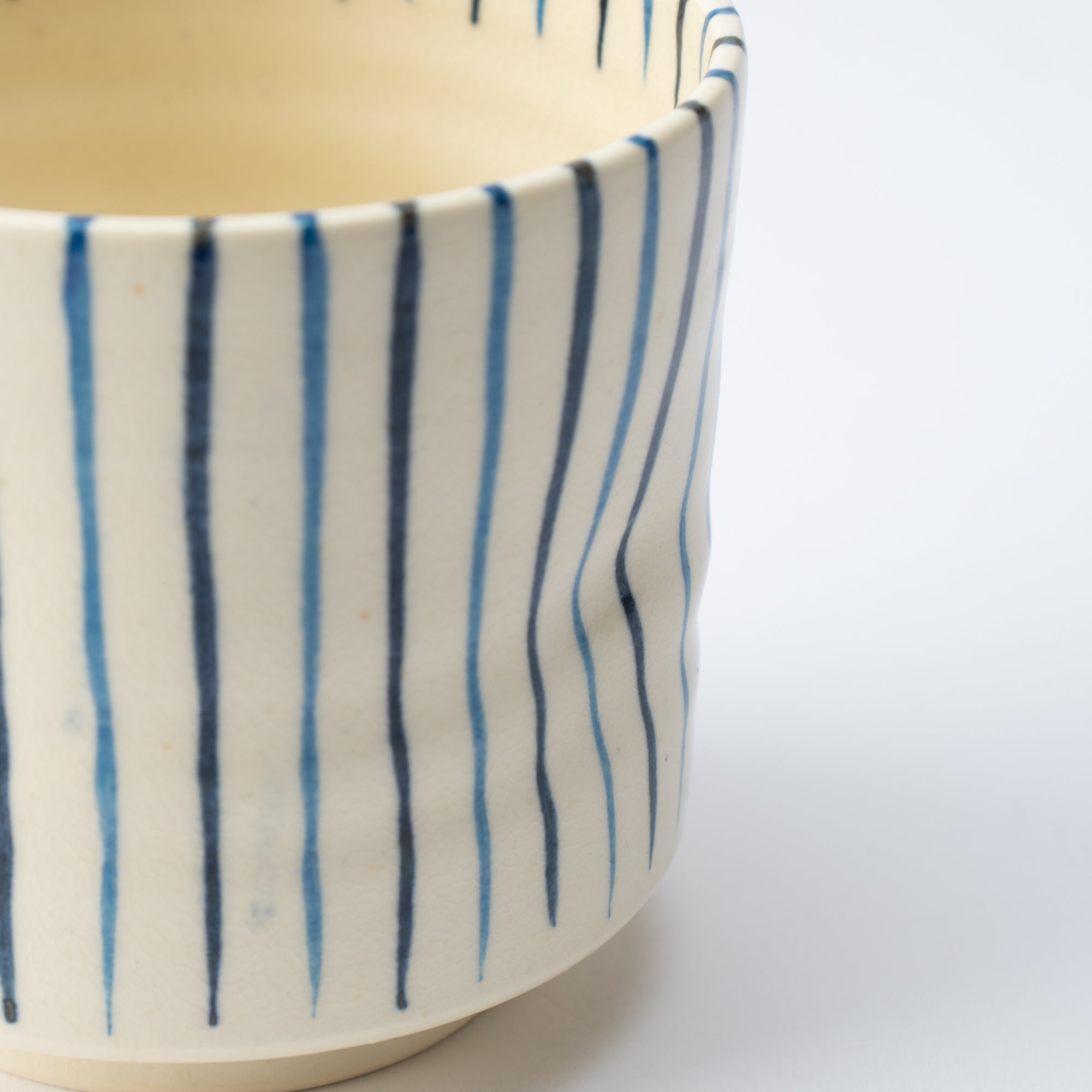
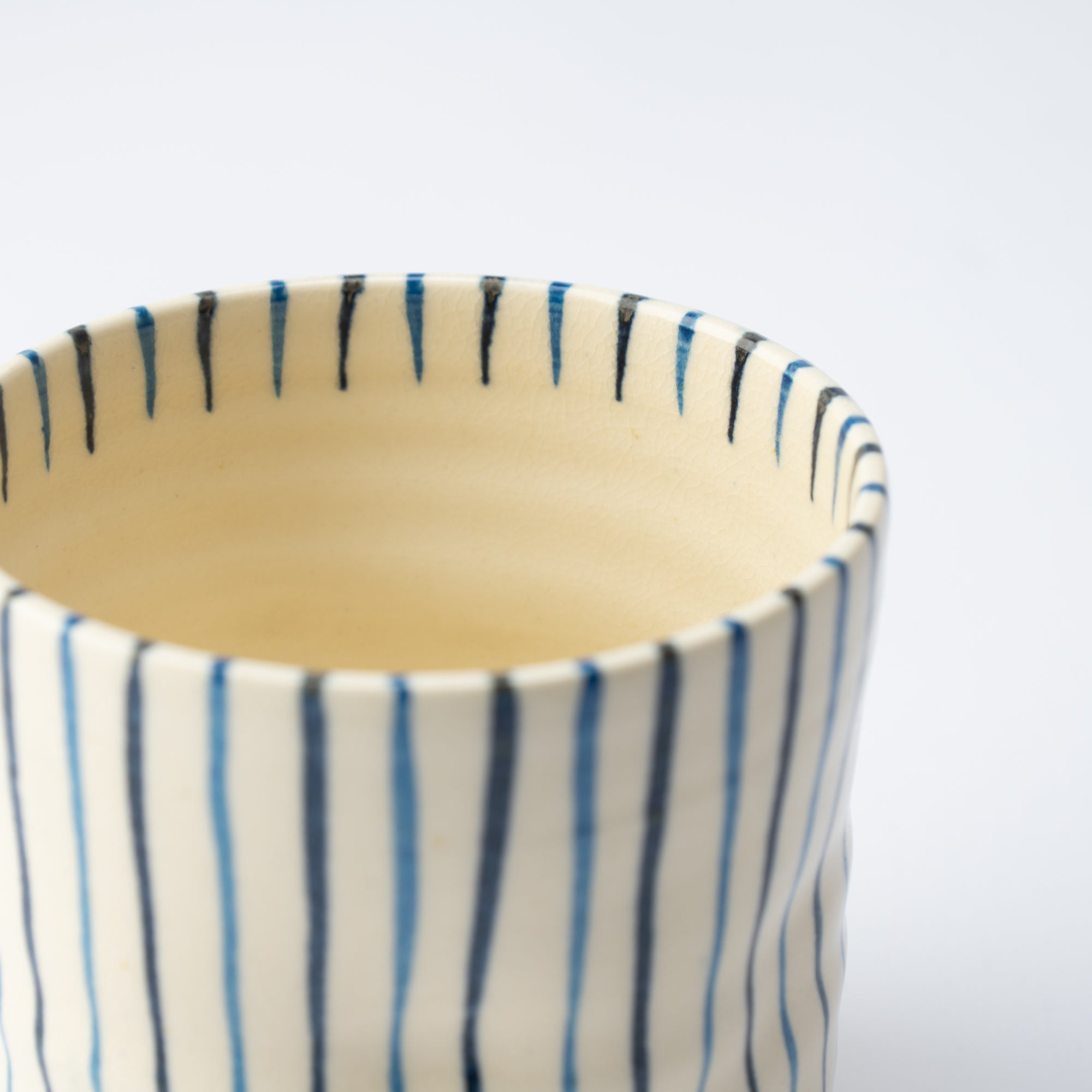
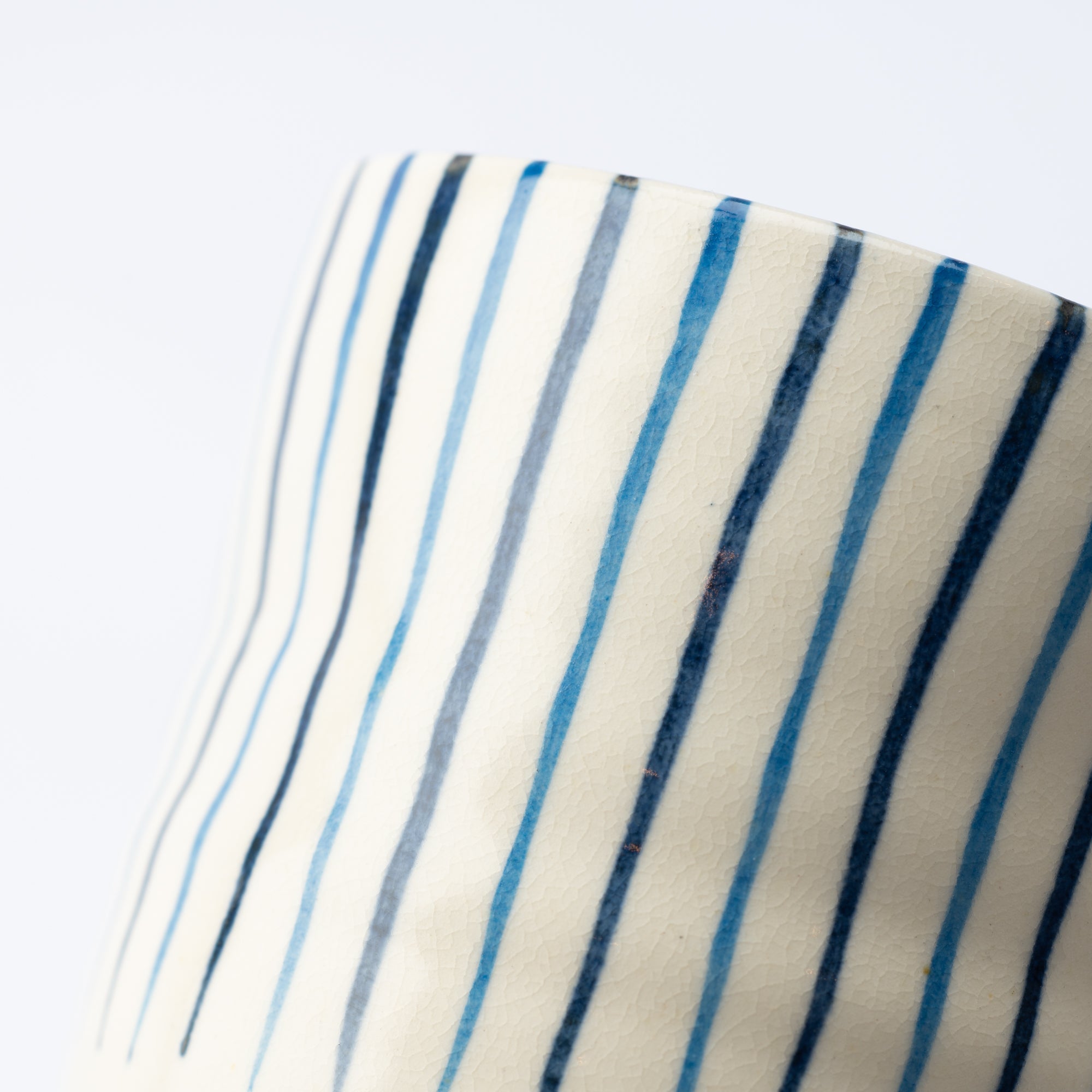
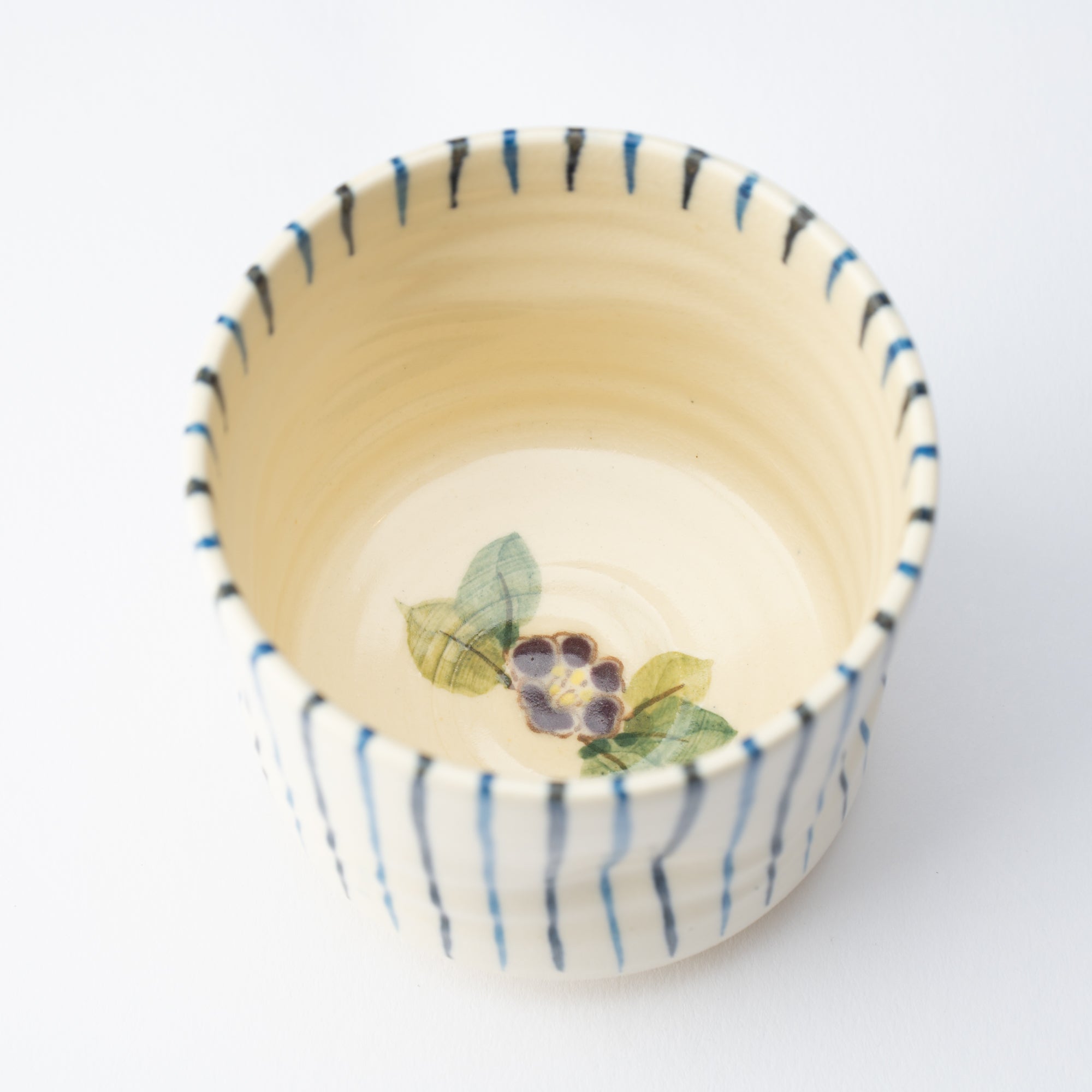
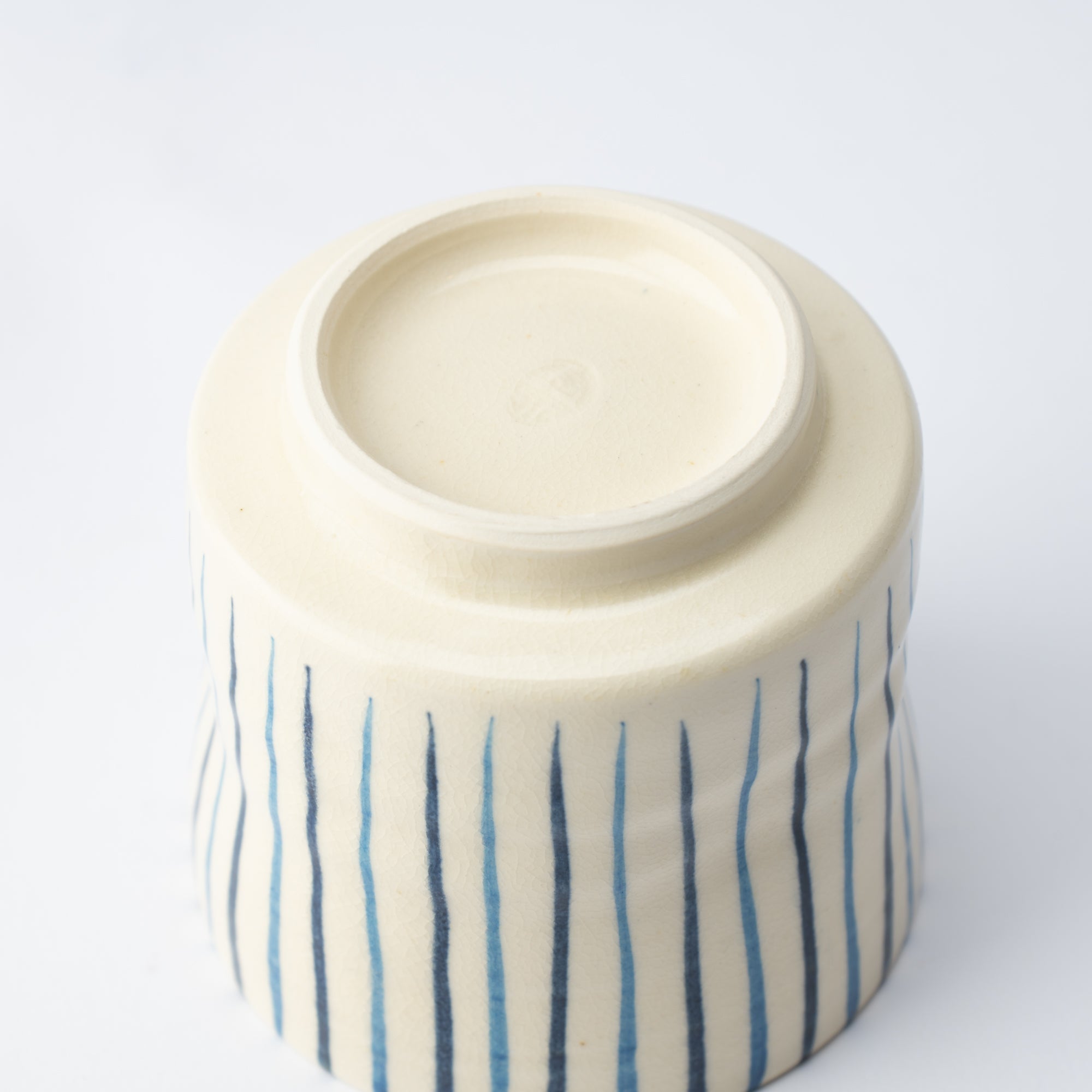
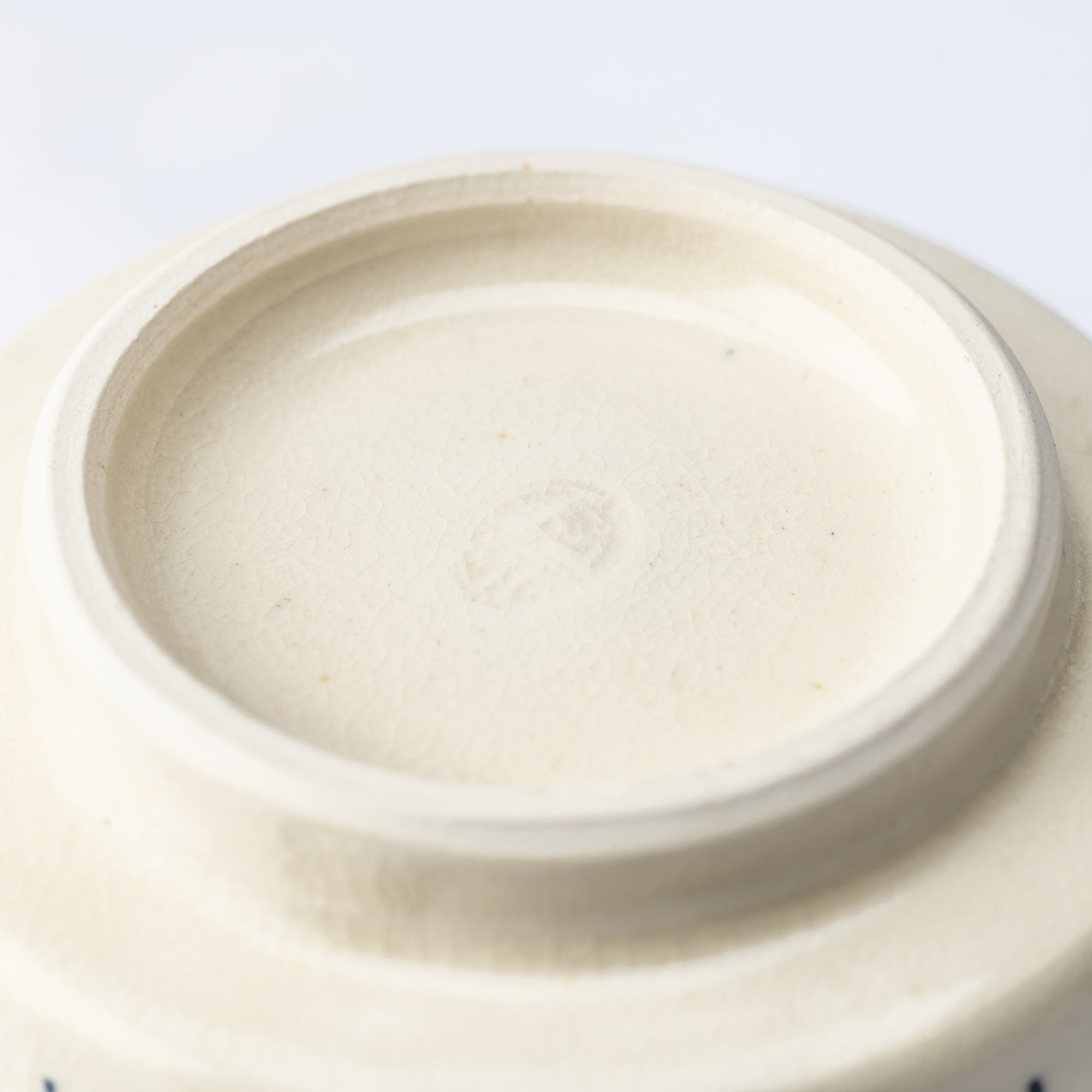
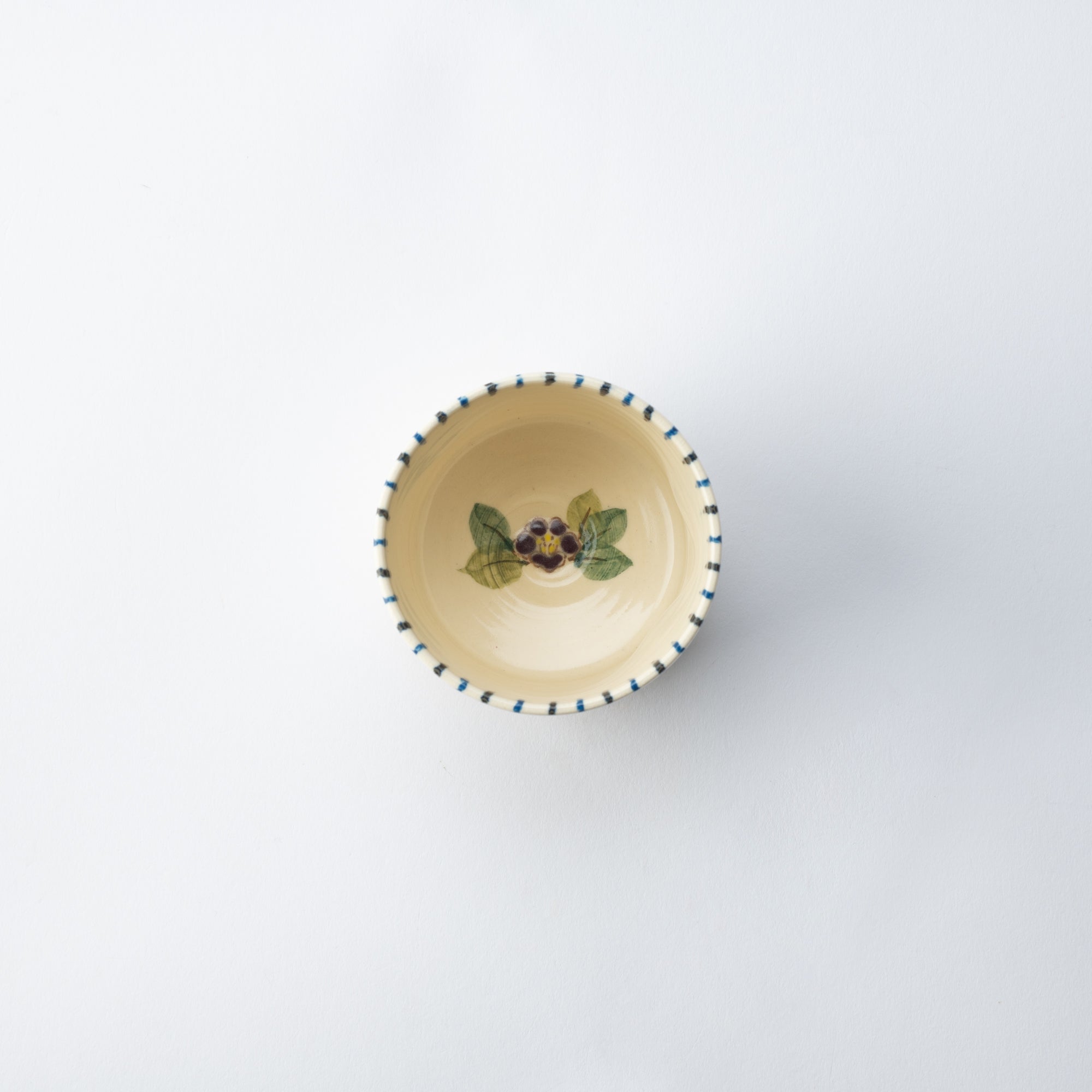

Japanische Teetasse mit Tokusa-Muster, Yunomi
Estimated Shipping Widget will be displayed here!
Mit dem unverwechselbaren Nami-Yu Glasur, gewonnen aus der Asche des Kyoto-Waldes, verkörpert diese Teetasse eine natürliche Grundfarbe von Cremeweiß und wird durch die elegant angepasste tokusa (Schachtelhalm-)Design, der innovative Ansatz des Handwerkers Taniguchi für traditionelle Muster.
In dieser Version wird das Tokusa-Design durch zwei verschiedene Farbkombinationen zum Leben erweckt. Eine Teetasse weist handgezeichnete Linien in Rot und Blau auf, die Wärme und Tiefe vermitteln. Die andere Teetasse hingegen weist ein blau getöntes Tokusa-Muster auf, dessen schlanke und gleichmäßige Linien einen wunderbaren Kontrast zum cremeweißen Steingut bilden.
Gezielte Dellen auf der Oberfläche des Biskuitporzellans verleihen ihm Einzigartigkeit, indem sie von einer streng runden Form abweichen und ein taktiles Erlebnis bieten.
Beim Drehen der Tasse entfaltet sich das Tokusa-Design und zeigt Taniguchis gekonnte Adaption des traditionell blauen Musters. Die handgemalten Linien zieren die Außenseite und erstrecken sich bis ins Innere der Teetasse. Sie bilden einen Kontrast zu ihrer weißen Schlichtheit und geben den Blick auf eine einzelne Kamelienblüte in der Mitte frei. Diese sorgfältige Direktmalerei auf geschrühtem Ton erfordert eine unter Kunsthandwerkern seltene Meisterschaft.
EINZELHEITEN
| Quantity | 1 |
| Size | D 8 cm (3.1 in) x H 7.5 cm (2.9 in) |
| Capacity | 150 ml (5.3 fl oz) |
| Material | Stoneware |
| Package Type | Paper box |
| Microwave | No |
| Dishwasher | No |
Hersteller / Marke
Tosen Kiln wurde 1868 als Großhändler für Kiyomizu-Ware gegründet. 1944 eröffnete das Unternehmen ein Produktionsstudio in Mukomachi, einem Vorort von Kyoto, und begann damit die Produktion von Kiyomizu-Ware in großem Maßstab. Heute ist der Ofen in Gojo, Kyoto, in Betrieb und führt sein handwerkliches Erbe fort.
Tosen Kiln hat sich der Verfeinerung seiner Techniken und seines künstlerischen Feingefühls verschrieben und greift die traditionelle Handwerkskunst Kyotos auf, während es sie an die Moderne anpasst. Inspiriert vom Töpfermeister Nonomura Ninsei aus der Edo-Zeit, bewahrt das Unternehmen dessen präzise Drehtechniken und leuchtenden Malstil und verbindet diese mit klaren Linien und warmen Tönen, um Stücke zu schaffen, die mit der zeitgenössischen Ästhetik harmonieren.
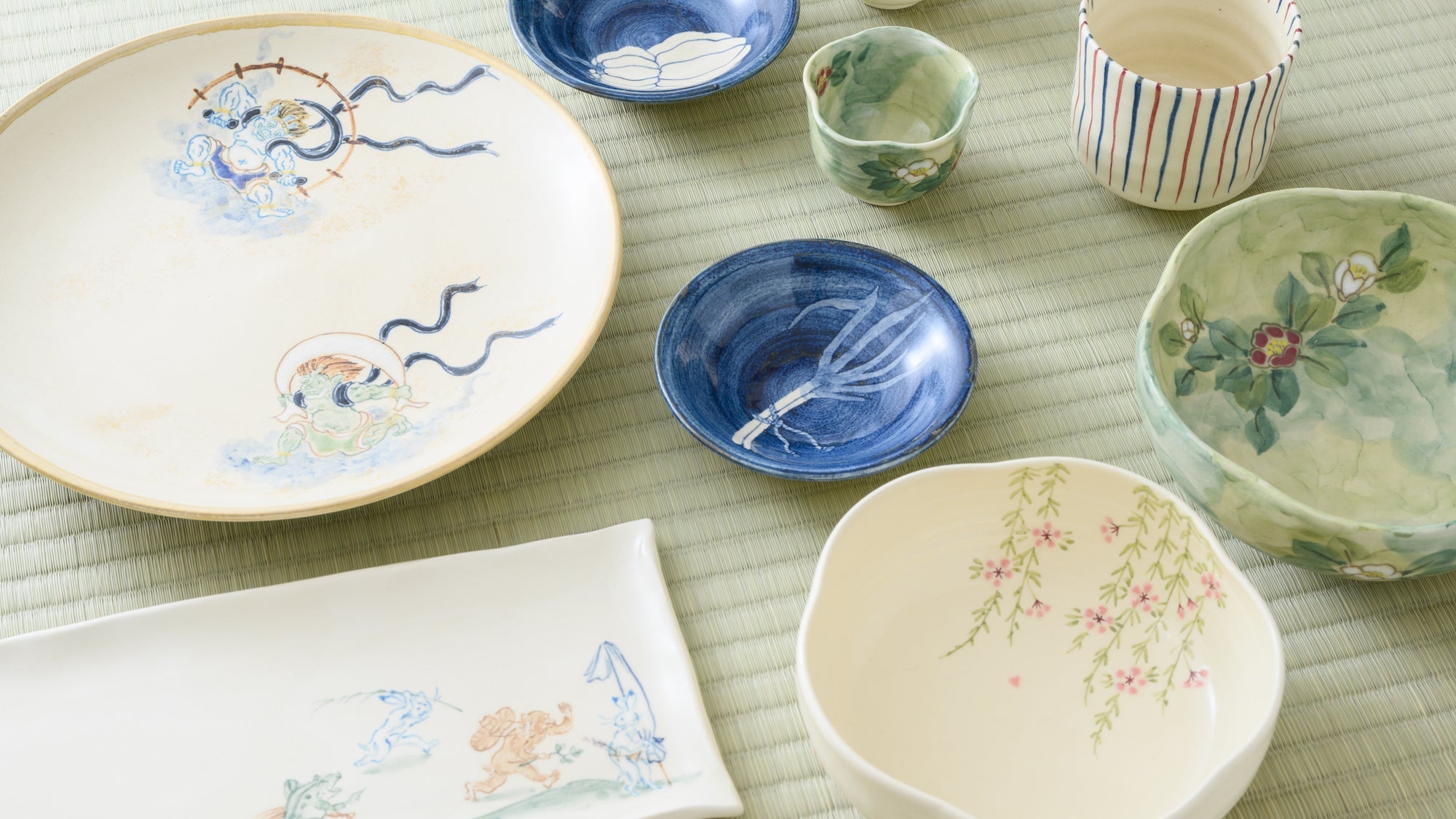
Kunsthandwerk
Kyo- und Kiyomizu-Ware, zusammen als Kyo-yaki und Kiyomizu-yaki bekannt, sind berühmte Keramikstile aus Kyoto. Bekannt für ihr lebendiges Design, ihre fein geformten Formen und die Liebe zum handwerklichen Detail, spiegeln diese Waren Kyotos unverwechselbaren Sinn für Schönheit und künstlerische Raffinesse wider.
Kyo- und Kiyomizu-Ware zeichnen sich durch eine lange gepflegte Vielfalt aus und greifen auf Techniken und Stile der Töpfertraditionen Japans zurück. So entwickelte sich eine ausdrucksstarke und typisch Kyoto-Kunstform. 1977 als traditionelles japanisches Kunsthandwerk anerkannt, werden sie bis heute wegen ihrer kulturellen Tiefe und Alltagstauglichkeit geschätzt.
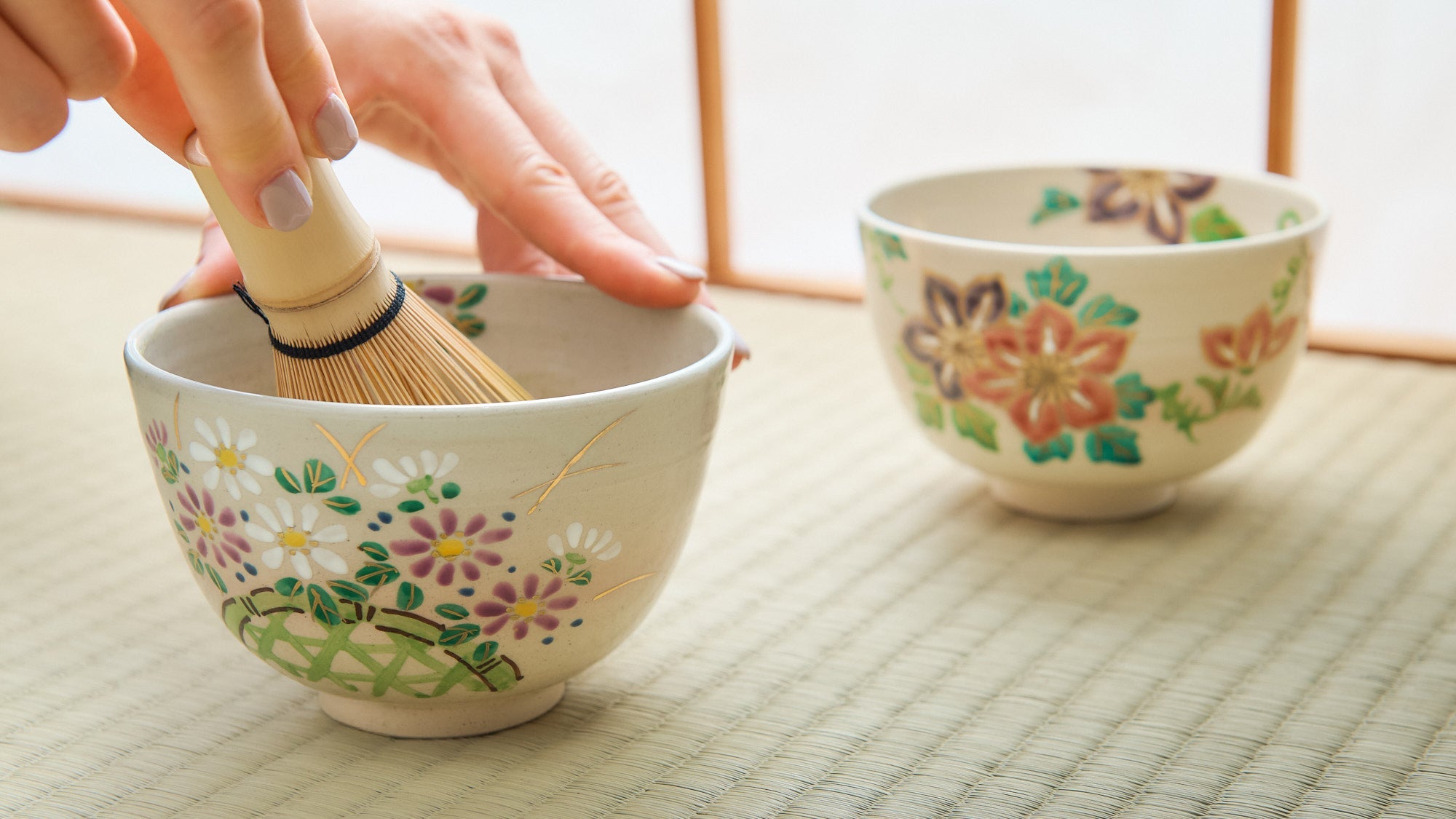
Optionen auswählen























Estimated Shipping Widget will be displayed here!
Japanische Teetassen von Yunomi
Yunomi sind eine Art vertikale, zylindrische Teetasse. Sie werden typischerweise für gemütliche Teestunden verwendet. Aufgrund des großen Fassungsvermögens einer Yunomi ist der Bereich, in dem der Tee mit der Luft in Berührung kommt, klein, sodass der Tee nicht so schnell kalt wird. Sie eignen sich auch, wenn Sie viel trinken möchten Bancha oder Hojicha. In Sushi-Restaurants wird Tee traditionell in einem Yunomi serviert.
